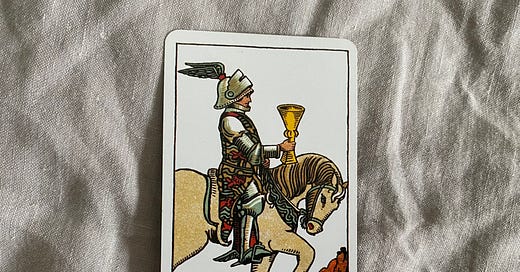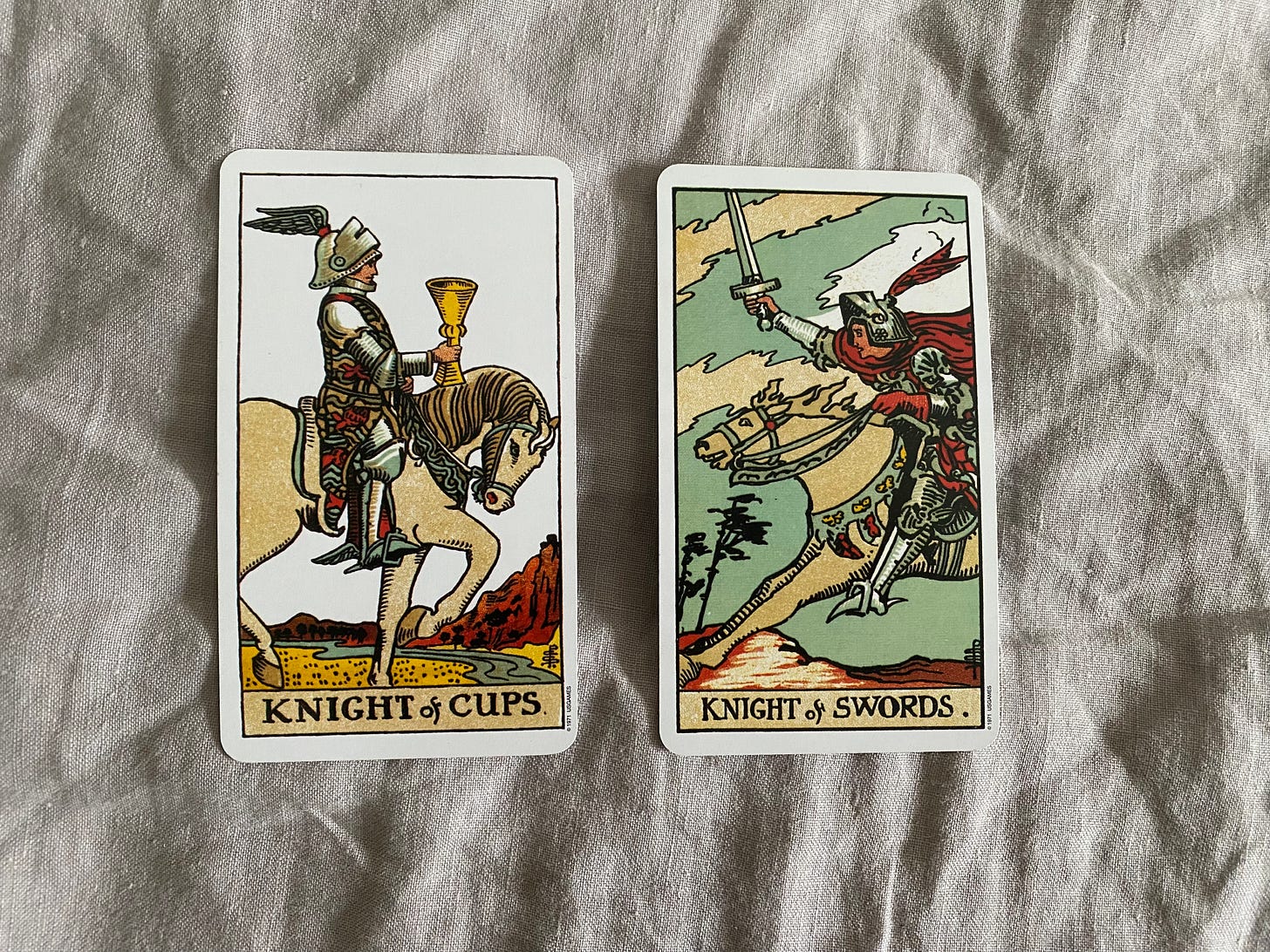I’ve gone silent on here for a bit, after sticking to a consistent fortnightly schedule. As much as I don’t want to admit it, there is a specific reason: a horrible review of my novel in Quillette.
I know, I know – Quillette is a garbage publication. They masquerade as non-partisan intellectuals, but publish articles with headlines like ‘The Campaign to Erase Biological Sex’ or ‘Feminism's Blind Spot: the Abuse of Women by Non-White Men, Particularly Muslims’. So I really should not be surprised that their review of Ghost Chilli includes this line:
this novel smells less of fresh Indian spice than of microwave supermarket naan.
I am picturing this reviewer really patting himself on the back for coming up with such a zinger, blowing fake smoke off finger guns. Meanwhile, I’m here scratching my head about how he’s spent the entire review deriding my book as elitist, yet turns his nose up at ‘microwave supermarket naan’.
I want to call this racist but that feels like giving it too much credit; so I’ve concluded that it’s just stupid. Too stupid to be racist. I just can’t take it seriously as a piece of racism. But it annoys me that being Indian made me available for such a cheap shot. (Is ‘cheap shot’ an elitist thing to say? Sure, why not – anything goes in the Quillette universe, where a character in Ghost Chilli joking that ‘boundaries are for white people’ can be classified as ‘racial essentialism’. More racially essentialist than rating my book on a scale of ‘fresh Indian spice’ to ‘supermarket naan’, apparently.)
I know it’s not a good look to publicly respond to bad reviews. I never thought I would. I also really value criticism. That’s like, the one good thing about having Saturn on my ascendant. I just know there will always be work to do; if not to make things better then to make it more timely, more relevant. But it’s not just about what I can gain from feedback. In a talk I went to this week, Heather McCalden said that a book is essentially a passage between reader and writer, a relationship. The words she used to describe someone reading her work was ‘completing the loop’. A piece of literary criticism gives you fascinating insight into this loop, because the reviewer has, in theory, closely read your book, and is analysing it as part of a larger cultural conversation. Being privy to this thought process can be emotionally devastating at times, but that’s an occupational hazard.
The only thought process I can detect in the Quillette review is: ‘how can I chop and change pieces of this book to make it seem like it’s about a privileged brat complaining to her therapist about mommy’. I.e. saying Muskan, the main character, experiences no growth by the end of the book, using the example of her buying strangers a round of tequila shots. No, that was at the beginning. And when collaging becomes too much effort, he just makes stuff up, i.e. Muskan working remotely at a cabin in Vermont. At no point does she step foot in a cabin, or Vermont.
All this should, in theory, be enough to convince me to drop it. Nobody I respect takes Quillette seriously. I should be glad they did not like my book. And yet. And yet…
I guess it confirmed a fear that’s been dogging me for a few years now. That the subject material of my book fits too neatly into well-trodden discourse narratives. Trauma plot. Sad girl lit. Young woman writing thinly veiled autobiography. New York–centrism. Ghost Chilli is a very deliberate effort to challenge all that. And it’s no more of an autobiography than Portnoy’s Complaint or Go Tell It on the Mountain. But how will anyone see that if they take one glance and think ‘sigh, not another one of these’. And can I blame them for being fatigued?
For a while I ricocheted between thinking ‘maybe he has a point’ to ‘fuck this shit’ to ‘maybe I should write an actual hit piece, show him how it’s done’ to ‘let it go, none of this shit matters’ to ‘I have to stand up for myself’ to ‘I have to stand up for RACISM’ to ‘maybe I should be more compassionate to this reviewer – we all need to make our buck in the attention economy’. I asked the tarot, multiple times, what I should do, how I should go about the situation, whether I should stay silent or write about it publicly, and no card resonated. Which you can expect if you ask it 100 different questions and are never satisfied with any of those answers. But one card kept showing up again and again:
All the Knight cards, according to Biddy Tarot, represent work, effort, and responsibility – making good on the ideation phases represented by the Pages. The Knight of Cups is offering a chalice with ‘a message from the heart’ (Biddy again), arm outstretched. This is the knight that is writing romantic poetry for his lover. His horse is slow and plodding. He is not charging towards battle, like the Knight of Swords.
The astrologer and tarot reader Joanna Watters once told me not to just ask what is this tarot card, but who is this tarot card.
If it comes down to me or the reviewer, the Knight of Cups is definitely me. Ghost Chilli – or maybe this essay – is the cup. This is a card, I think, about offering something emotional (the cup’s contents), that you’ve worked hard at crafting (the cup); with no shortage of vulnerability. For every person who flings the cup out of your hand and chants nyah nyah nyah nyah nyah nyah, there might be one who takes a sip and says it’s lovely. Let’s say it’s wine – they might detect a flavour you did not realise was there, ‘malty blueberries’ or something. Or they say it’s too tannic for their liking. Maybe they’ll say ‘thanks but not in the mood’. Or they’ll comment on the structural integrity of the cup. You just have to accept their reactions and move on. Right?
Despite my attempts to be a good sport, the cup was starting to become too heavy to lift. I had fully, stupidly internalised the review. I decided to take a last-minute trip to the seaside and told myself: this is such a privileged narcissist thing to do, fuck off to the seaside when you’re upset about something. I was ashamed of Ghost Chilli for not disguising its themes more cleverly. I should have set the novel in the year 2055. I should have had Muskan glean wisdom from an ancient talking tree instead of a therapist. I had failed at imagination. I thought maybe the card was telling me to just get back on the saddle and move on, write something new, something better – something people would be less inclined to swat aside.
One morning I got coffee at a place called Starsky & Hatch, which is in an underpass beneath the boardwalk. I wanted to sit at one of the chairs on the beach (above), but they said they did not have paper cups. So they said I could just take the mug to the beach and bring it back later. It was such a simple gesture but I was really moved by it.
I sat on the beach chair and forced myself to just sit there with the coffee. No book, no phone, no podcast, no writing. I stared down the sea until, eventually, I softened – how can you not? It’s trite but true; you are just reminded of how small you are in the grand scheme of things. This reviewer and I, and anyone else, is equally capable of drowning. That’s when I noticed:
Something liberating happens when your worst case scenario plays out (even if that scenario is small potatoes). You are free of the dread. You are humbled. I wonder if it’s better to treat Ghost Chilli, or all my writing, less like a chalice of wine, more like a ceramic cup of coffee. Not as expensive, not as mind-altering, but a small invigorating drink that, like wine, has terroir. Writing, perhaps, is just an offering, that should be given with the easy trust the people at Starsky & Hatch offered me – take it away, bring it back whenever, enjoy. Accept that the cup is now out of your hands; enjoyment is not guaranteed. Just be chivalrous. Polish your armour. Feed your horse. Plod on.
Links:
I loved this essay by Michael Rance about what success means as an artist, and this one on ironic detachment by Catherine Shannon.
This is NOT a recommendation, since it’s The Sound of Silence by Simon & Garfunkel (looool). But the song came on my shuffle the other day and I was just thinking about how stunning, and how relevant, the lyrics are, even though they are painfully earnest and a little condescending. I think the cringe factor (‘Hello darkness my old friend’) might be part of its appeal, like you have to resist the temptation to ignore it because it’s saying something we don’t want to hear (‘people talking without speaking, people hearing without listening’). Another song with lyrics I never cease to be amazed by is The Heart of the Matter by Don Henley, particularly the lyrics: These times are so uncertain / there’s a yearning undefined / and people filled with rage. I am partial to the India.Arie cover, which I first heard on the Sex and the City movie soundtrack, an excellent album.
Ghost Chilli is available in the UK, some parts of Europe, and some parts of India.
This will be my last post until November, because I am focusing on a big project with a deadline. Thank you as always for reading.
Love,
Your Fave New York Narcissist








I like this sentence: “I stared down the sea until, eventually, I softened – how can you not?”
wait what the actual fuck!!! im so sorry about this really disgusting review